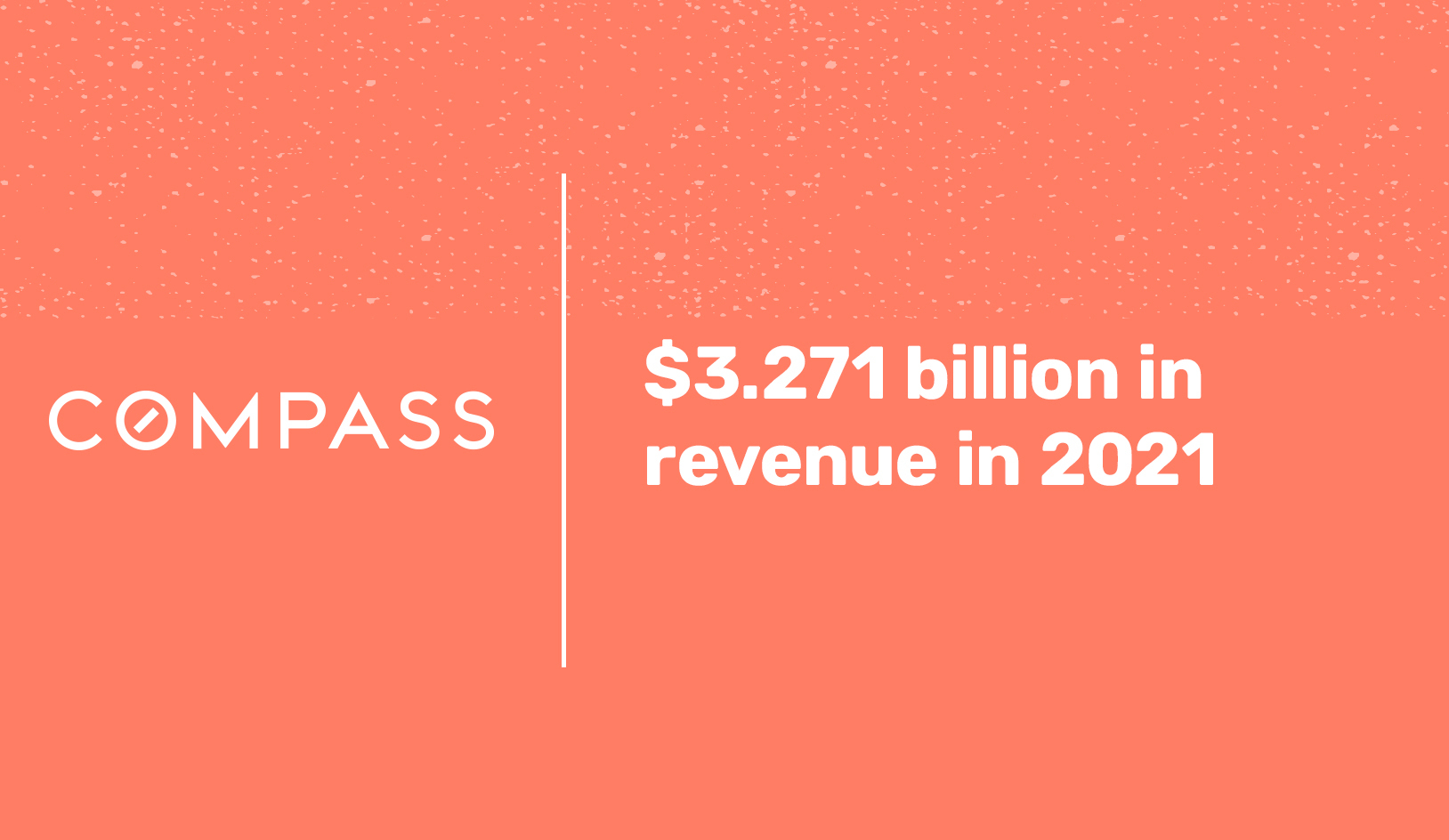
Digital transformation in real estate: lessons learned from the turbulent journey of compass.com

The real estate sector has seen some seismic changes in recent years, as new players disrupt the market with innovative technologies. One of the most notable is Compass, a real estate company leveraging proprietary technology and digital transformation to make significant waves in the industry.
By digitizing processes and prioritizing customer and agent experience, Compass has succeeded in positioning itself as one of the most important new names in real estate. Compass has run into trouble recently, as their stock plummeted and key executives left the company. However, their story provides some valuable lessons for other companies seeking to navigate digital transformation
Meet Compass.com
Founded in 2012, Compass is focusing on simplifying the real estate process by using cutting-edge technology. Their customers include home buyers, sellers, and real estate agents. Compass offers a number of features, including a home-buying app, a website that allows for easy search and comparisons, a mortgage calculator, and more, all of which leverage AI to provide a personalized experience and improve the overall experience for house hunters and real estate agents.
How Compass approached digital transformation in real estate
Compass is in the real estate business, an industry that has been around at least since the early 1800s - not exactly known for using cutting-edge technology. That’s where Compass saw an opportunity for innovation. They understood that, by embracing technology and pursuing digital transformation, they could become the first modern real estate platform.
Compass has a number of innovative features for multiple audiences of home buyers, sellers, and real estate agents.
First, there’s Compass Markets, a mobile app available on both Android and iOS devices. Embracing the fact that people spend more and more time on mobile every year, while desktop internet usage continues to fall, Compass decided to meet its audience where it is - on mobile. The app comes equipped with highly valuable data such as real-time residential real estate figures, recent transaction data, and historic sales trends.
Compass also offers highly convenient digital features such as user-friendly home search and price comparison, allowing home buyers to find properties within their budget. The app also includes a mortgage calculator, helping its customers predict whether or not they’ll be able to afford a particular property.
Both their app and website retain customers’ search preferences, helping save time and reduce irrelevant results. In this way, home buyers receive the personalized service of a top real estate agent without having to meet up with one in person.
Together, agents and home buyers can use Compass Collections to collaborate through a curated digital visual workspace where they can organize homes, have discussions, and receive immediate market updates about status and price.
Real estate agents using Compass also have access to Compass Insights, a revolutionary dashboard that contains key data points that not only allow agents to better market their properties, generate more leads, and invest wisely, but also helps provide buyers with important, granular details to consider in the home search process.
Compass’s Marketing Center lets agents create customized, localized, and personalized digital marketing materials while the Compass CRM helps agents manage customer relationships using the power of AI.
In short - Compass offers digital, high-tech solutions for every step of the home buying and selling process.
The challenges
Of course, disrupting a centuries-old field isn’t always smooth sailing, and Compass faced some challenges as they were getting started.
Going from zero to completely revolutionary right off the bat wasn’t going to be an option, so Compass’s business model at the beginning looked a bit different from how it does now. At its start, compass employed full-time salaried brokers who would be paired with customers using the Compass platform. They also began exclusively focusing on rentals, not home sales.
This was enough to help get Compass to the next level, but it was still more reliant on old-school models of real estate than Compass’s bigger-picture vision. That’s why, in 2014, Compass switched over to contracting independent real estate agents and taking a portion of their commissions, something more reminiscent of the gig economy model popularized by Uber.
Compass’s biggest challenge, however, has been the coronavirus pandemic. The company had to furlough over 1,000 employees and agents in April 2020 as the virus caused the real estate market to crash. Many people were suddenly unable or unwilling to buy or sell homes, and Compass’s business model was put to the test.
Luckily, Compass was able to quickly adapt. The company started offering virtual open houses and 3D walkthroughs of properties to help people view homes without having to physically be there. It also instituted new health and safety standards for in-person showings, such as wearing masks and gloves, maintaining social distance, and not allowing more than two people in a home at a time.
Recently, stock market value plummeted and key executives sold off millions in stock options, so it will be interesting to see how Compass fares in the coming months.
Despite the challenges it’s faced, Compass has been a trailblazer in the world of real estate, and its story is proof that digital transformation is possible – even in an industry as old and tradition-bound as this one.

The benefits
Compass’s unique blend of technology, design, and a human touch, has positioned them as a major player in the real estate industry. By embracing digital transformation, Compass has seen a number of benefits.
The highly functional and intuitive mobile app is more user-friendly than any tools that real estate agents were used to dealing with, making it easy for Compass to grow its pool of realtor contractors. And it’s all powered by highly advanced analytical technology that helps real estate agents triangulate the value of properties, develop property-specific marketing plans, and predict how the market will respond to new properties entering the market - all highly valuable data.
The same UX-focused design has also made Compass incredibly appealing to home buyers, who are able to search properties more easily and with a personalized touch that addresses how much the modern consumer values a company’s ability to understand their unique needs and expectations.
And by offering features for all the players in a real estate transaction - buyer, seller, and broker - Compass is able to create true synergy and maximize revenue.
With the real estate sales market as a whole cooling down, Compass has had to come back down to earth a bit. In 2022, Compass faced stock price drops, consolidations, and lay-offs, taking some cost-cutting measures in preparation for becoming profitable again in 2023.
Of course, not all is lost: Compass’s revenue grew to $2.0 billion, up 4% year-over-year in the second quarter of 2022
Lessons learned
Ultimately, real estate is a competitive business at the mercy of a market that no company can single-handedly transform or control, no matter how innovative their tech. But there are still lessons to be learned from Compass’s impressive journey to digital transformation that allowed them to be the largest in the United States in terms of closed sales volume in 2021 despite a rocky year.
Lesson 1: Technology is key, but it must be integrated seamlessly into the customer experience
Compass has focused on design and user experience from day one. And it’s paid off – the company’s mobile app is one of the most popular in the industry.
But it’s not enough to just have a great product; you also need to make sure that it’s properly integrated into your customer experience. That means having a clear strategy for how technology will be used to improve the customer experience at every stage of the journey.
The importance of agent experience.
Early on, Compass earned a reputation for appealing to real estate brokers. This was in no small part thanks to their focus on agent experience, creating a user-friendly app with a number of cutting-edge tools and analytics based on AI technology.
The importance of end-customer experience.
Compass didn’t just take the angle of helping real estate agents; they also leveraged their technology to help the real estate customer, offering a streamlined, personalized experience for the home buyer.
Lesson 2: The value of digitizing manual processes
The real estate world can involve a lot of headache-inducing manual processes for all parties involved, from agents trying to determine market evaluations to buyers comparing property listings by hand. Compass’s ability to digitize these processes with the help of machine learning and top AI technology all presented in a UX-friendly interface was able to save time, reduce errors, and create a superior experience for all.
Lesson 3: Don't underestimate the importance of data
In the world of real estate, data is king. And Compass has leaned into this, using data to inform everything from their marketing strategy to their product development.
They’ve also been able to use data to create a more seamless customer experience. By understanding the customer journey and using data to personalize the experience, Compass has been able to create a real estate experience that is truly customer-centric.
Lesson 4: Change can be difficult, but it's necessary to stay ahead of the curve
Digital transformation is a journey, not a destination. Compass’s story is a great example of what’s possible when you focus on the customer experience and use technology to streamline manual processes and provide personalized experiences. But it’s also important to remember that digital transformation is a journey, not a destination. There is no one-size-fits-all solution, and companies need to be prepared to continuously adapt their strategies as the market changes.
What’s next for Compass? Only time will tell. But one thing is for sure: digital transformation is essential for companies in the real estate industry to stay competitive. By learning from the successes and failures of companies like Compass, other businesses can chart a course for their own digital transformation journeys.
Get the latest
on going digital
















.png)